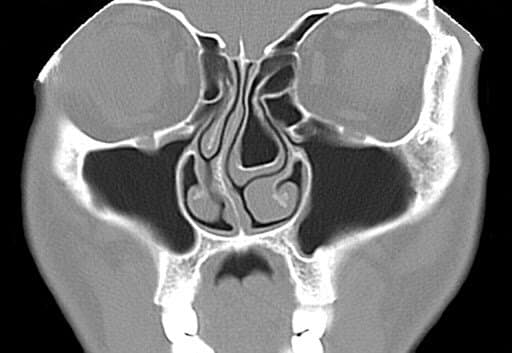Seasonal Sinusitis and Immune System: Key Connections Explained
Seasonal sinusitis often surprises many—one moment you’re enjoying spring blossoms, and the next you’re battling congestion, sinus pressure, and discomfort. If your sinus issues tend to worsen during certain times of the year, you may be experiencing seasonal sinusitis. But what exactly is seasonal sinusitis, and how does your immune system influence your sinus health? This article explores the connections between seasonal sinusitis and the immune system, explains common triggers, and offers practical strategies to help you stay comfortable throughout the year.
1. What is Seasonal Sinusitis?
Seasonal sinusitis occurs when the tissues lining your sinuses become inflamed during specific seasons. This inflammation is usually triggered by allergens like pollen (from trees, grasses, or weeds), mold spores, and sometimes air pollutants that rise in spring, summer, and fall. When these allergens enter your nasal passages, they provoke inflammation, leading to swelling and excess mucus production. Swelling narrows sinus drainage pathways, causing mucus to accumulate and potentially trapping bacteria or viruses, which can lead to infections.
Think of your sinuses as a network of small caves that are normally open and continuously clearing mucus. Allergens cause swelling that blocks these cave entrances, much like sealing a cave door shut. The trapped mucus can create an environment conducive to bacterial growth, potentially leading to infection.
Understanding seasonal sinusitis includes recognizing your triggers and appreciating how your immune system responds. Untreated or prolonged inflammation can increase the risk of infection. This knowledge provides a solid foundation to better manage symptoms and support your immune system through allergy seasons.
2. How the Immune System Affects Seasonal Sinusitis
The Immune Response and Sinus Inflammation
When allergens such as pollen or mold spores enter your nasal passages, your immune system responds by releasing histamines and other chemicals to combat what it mistakenly perceives as a threat. Histamines cause blood vessels in your sinus linings to dilate and become more permeable, resulting in swelling and increased mucus production. This swelling restricts sinus passages, causing congestion, thick mucus, and sinus pressure typically felt around the eyes, cheeks, and forehead.
If mucus cannot drain properly due to swelling, it becomes stagnant—an ideal environment where bacteria or viruses can multiply. The immune system then fights this possible secondary infection, sometimes worsening symptoms and prolonging recovery.
Common Immune Triggers in Different Seasons
- Spring & Summer: Tree and grass pollens fill the air, triggering allergic sinus inflammation in many individuals.
- Fall: Ragweed pollen peaks, and decaying leaves harbor mold spores, both continuing to activate immune responses.
- All Year Round: Mold spores in damp indoor or outdoor environments and dust mites act as constant immune triggers for those with allergies or sensitivities.2
Monitoring local pollen counts or mold levels can help predict flare-ups and guide preventive actions like closing windows or enhancing air filtration on high-risk days.
Immune Deficiencies and Chronic Sinusitis
While most seasonal sinusitis cases are driven by allergies and resolve on their own, frequent sinus infections or persistent inflammation may indicate underlying immune system concerns. Certain immune deficiencies impair the body’s ability to fight sinus infections effectively. Conditions such as specific antibody deficiency (SAD) or common variable immune deficiency (CVID) reduce antibody production, making infections more frequent and harder to resolve.1, 4
If you experience chronic sinusitis—lasting more than 12 weeks—or recurrent infections despite treatment, it is advisable to discuss immune system testing with your healthcare provider. Early diagnosis of immune deficiencies enables targeted therapies that can enhance sinus health and overall immunity.
Recognizing when your immune system needs support is key to managing chronic sinus issues.
3. Symptoms and Impact on Immunity
Recognizing Seasonal Sinusitis Symptoms
Key symptoms indicating seasonal sinusitis include:
- Sinus pressure or a feeling of fullness around the cheeks, eyes, and forehead
- Nasal congestion or stuffiness limiting airflow
- Post-nasal drip, causing mucus to drain down the back of the throat and trigger coughing
- Headaches that worsen with sinus pressure
- Facial pain or tenderness when touched
- Reduced or lost sense of smell (anosmia)
- Occasionally, a mild fever may occur, which could indicate a secondary infection
These symptoms often peak during allergy seasons and may improve when allergies are controlled. For an extended symptom list, see our Symptoms of Sinus Problems page.
How Symptoms Reflect Immune Activity
The swelling, mucus production, and sneezing in sinusitis reveal your immune system actively responding to allergens. Paradoxically, this defensive reaction causes symptoms that reduce sinus drainage, increasing the risk of infections.
Think of your immune system as a cleanup crew that mistakenly blocks the cave entrances while clearing debris—maintaining inflammation and mucus buildup, perpetuating discomfort and infection risk.
When Sinusitis Affects Immune Health
While occasional sinusitis rarely impacts overall immune function, chronic or repeated infections strain the immune system, increasing vulnerability to other respiratory illnesses like colds, bronchitis, or pneumonia. Persistent inflammation creates systemic stress and fatigue, lowering your body’s resilience over time.
Supporting your immune system during sinus flare-ups is essential to break this cycle and restore vitality.
Maintaining immune health is central to effective sinusitis management.
4. Managing Seasonal Sinusitis
Would you like to get ahead of seasonal sinusitis and reduce its impact? Several effective strategies can provide relief and prevention.
Effective Strategies to Relieve Symptoms
- Saline Nasal Rinses and Sprays: Using saline rinses several times daily flushes out allergens and excess mucus, easing congestion and inflammation. Many patients report significant relief after consistent use.
- Over-the-counter Antihistamines and Decongestants: Antihistamines block histamine effects, reducing inflammation and sneezing. Decongestants shrink swollen nasal tissues but should be used sparingly to avoid rebound congestion.
- Consult an ENT Specialist: If symptoms persist beyond a few weeks or worsen, an ear, nose, and throat (ENT) specialist can assess for complications or recommend advanced treatments.
Lifestyle and Environmental Adjustments
- Monitor Allergen Exposure: Keep windows closed during high pollen days, shower after outdoor activities, and use air conditioning with clean filters to limit indoor allergens.
- Use Air Purifiers and Humidifiers Carefully: HEPA filters trap airborne allergens and improve indoor air quality. Humidifiers prevent dryness that worsens sinus discomfort; however, excessive humidity may encourage mold growth—maintain indoor humidity between 30–50%.
- Stay Hydrated: Drinking plenty of water thins mucus, aiding natural drainage and reducing blockages.
For more on coping with seasonal allergies, visit Seasonal Allergies and Sinuses: Surviving Spring.
Medical Interventions for Resistant Cases
When sinusitis persists or recurs despite standard care:
- Allergy Testing and Immunotherapy: Allergy testing helps identify potential triggers of allergic reactions. Immunotherapy (allergy shots or drops) supports your immune system in building tolerance to specific allergens over time, decreasing allergic responses and sinus inflammation. Learn more about Allergy Testing.
- Advanced ENT Procedures: For structural blockages or stubborn sinus inflammation, procedures such as balloon sinuplasty gently open sinus passages, restore drainage, and relieve chronic symptoms. Explore our information on Balloon Sinuplasty.
Early and appropriate interventions improve outcomes and quality of life.
5. Boosting Immune Health During Allergy Seasons
Supporting your immune system plays a vital role in managing allergy-triggered sinus issues.
Nutritional Tips to Strengthen Immunity
- Eat a Rainbow: Incorporate fruits and vegetables rich in vitamin C, antioxidants (like berries and leafy greens), and zinc (found in nuts and seeds). These nutrients fuel immune cell function and help reduce inflammation.
- Don’t Forget Vitamin D: Adequate vitamin D levels correlate with stronger immune defenses. Safe sun exposure or supplements can be especially beneficial during seasons when pollen limits outdoor time.
- Maintain a Balanced Diet: Limit processed foods and refined sugars, which may promote systemic inflammation and worsen symptoms.
Preventive Measures for a Strong Immune System
- Exercise Regularly: Moderate activity, such as a 30-minute daily walk, enhances circulation and supports immune surveillance.
- Prioritize Sleep: Aim for 7–8 hours nightly as sleep deprivation impairs immune response.
- Manage Stress: Chronic stress elevates cortisol levels, suppressing immunity. Mindfulness, yoga, or deep breathing exercises effectively counterbalance this.
- Stay Current with Vaccinations and Health Checks: Influenza and COVID-19 vaccines are important for respiratory health, especially during peak illness seasons.
When to Consider Further Immune Evaluation
If you experience frequent sinus infections resistant to treatment or signs of immune dysfunction, consult an ENT specialist or immunologist. Early diagnosis of immune deficiencies allows for personalized treatment plans that can greatly enhance sinus and overall health.
Proactive immune support fosters long-term sinus wellness.
6. Frequently Asked Questions
Can allergies weaken my immune system?
Allergies do not directly weaken immune defenses, but repeated allergic reactions cause ongoing inflammation that alters sinus environments and increases the risk of secondary infections.
How can I tell the difference between a sinus infection and allergies?
Allergies usually cause clear mucus, sneezing, and itchy eyes, while sinus infections often produce thick or yellow-green mucus, facial pain, and sometimes fever. For more, see our blog, Sinus Infection vs Cold: How to Tell the Difference.
Are there natural remedies to manage sinusitis and boost immunity?
Natural methods such as saline rinses, steam inhalation, and eating immune-supportive foods may provide relief or support; however, their effectiveness varies and they should complement, not replace, professional treatment.
When should I see an ENT or allergist?
Seek specialized care if symptoms are severe, persistent, or if you experience frequent sinus infections to rule out underlying immune or structural issues.
7. Conclusion
Understanding the relationship between seasonal sinusitis and your immune system empowers you to anticipate symptoms and minimize complications. The immune response to allergens is the driving force behind sinus inflammation and mucus buildup characteristic of sinusitis. Chronic inflammation increases vulnerability to infections and prolongs discomfort.
By proactively managing allergies, supporting immune health through lifestyle and nutrition, and consulting specialists when necessary, you can reduce sinus problems and enjoy every season more comfortably. Whether you need a comprehensive symptom evaluation, Allergy Testing, or advanced treatments like Balloon Sinuplasty, the Sleep and Sinus Centers of Georgia are here to help you breathe easier year-round.
Ready to take control of your sinus health? Book an appointment with us today!
Suggested Internal Links for Deeper Learning:
- Symptoms of Sinus Problems
- Allergy Testing
- Balloon Sinuplasty
References
- Immune Deficiency Foundation – Managing sinus issues in immune deficiency
- Columbia Breathe Free – Sinus infections and seasonal allergies connection
- Jefferson Health – Differentiating allergies and sinus infections
- PMC – Immune deficiencies related to chronic rhinosinusitis
This article is for educational purposes only and is not medical advice. Please consult a qualified healthcare provider for diagnosis and treatment.
Don’t let allergies slow you down. Schedule a comprehensive ENT and allergy evaluation at Sleep and Sinus Centers of Georgia. We’re here to find your triggers and guide you toward lasting relief.





